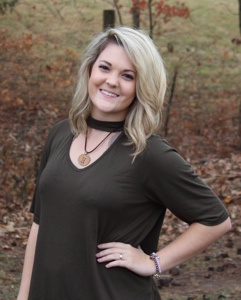Spring 2018
Work, Hope, and Community
“Tonight you will need to finish five chapters, and be ready by tomorrow to discuss with the class what you read,” the teacher instructed her noisy horde of fifth-graders, waiving Tolkien’s Hobbit above her head.
Haven Koehler, one such student, had never before encountered such a daunting demand. New to Highland Rim Academy, she spent many hours prior to her arrival in a special ed classroom, trying to overcome dyslexia and dysgraphia.
If she suffered from dyslexia and dysgraphia, how then might a CCE school that emphasizes reading and writing help her? Her parents felt the same way. But her current program was not helping and the novel prospect of Highland Rim gave them hope.
At first, she struggled. Unlike her previous school, Haven was held to the class standard and given little grade leniency when it came to the work she produced. A fifth grader at a second-grade reading level, the prospect of finishing five chapters in one night seemed like an impossible task. But, her teachers and her mother knew better.
At home, her mother spent hours reading with her, correcting mistakes and keeping her focused. She followed up with Haven’s homework schedule and ensured she was on track.
At school, her teachers took time after class to work with her and strategize ways to meet the class standard. When she failed, which at first she often did, her teachers met her failures with grace and went back to the drawing board. “When I performed poorly,” Haven says, “my teachers sat with me while I faced my disappointment, and told me that they knew I could do it, and then helped me plan how to succeed.” This vote of confidence transformed Haven’s educational experience.
Haven credits the CCE community as another key component in her transformation. At her previous school, she only partook in a few classes with her peers, and spent the remainder of the day in a special ed classroom. “I felt embarrassed leaving to go to my special classes.I wanted to do what everyone else was doing,” she recounts.
And the special ed classes didn’t help. “I went to classes with people who had much moresevere disabilities than I did, and where few were improving. The lack of challenge from my peers actually made my symptoms worse.”
At Highland Rim, Haven was fully integrated into the community. Because she was held to the same expectations as the class (with some slight accommodations), she rose to meet the standard, and her classmates helped her get there. “At first I felt bad, surrounded by so many smart people, but they helped me succeed.” Haven told of classmates who helped check her homework and read for spelling errors before she turned it in. “Being around so many smart people, who were so supportive of me, inspired me to push myself.”
When asked what helped her overcome her disabilities the most, Haven answered without hesitation: the personal support of her teachers and the integration with her classmates. She felt that her school was truly a safe place to fail.
 Not only did her community give her the spiritual support she needed, but the academic preparation as well. “I was so prepared for college. My time at Highland Rim taught me tothink logically, drawing from years of historical examples. I cherished Shakespeare, and really loved the true beauty and raw talent of writing. I can keep up in my classes and now
Not only did her community give her the spiritual support she needed, but the academic preparation as well. “I was so prepared for college. My time at Highland Rim taught me tothink logically, drawing from years of historical examples. I cherished Shakespeare, and really loved the true beauty and raw talent of writing. I can keep up in my classes and now
excel at reading and writing.”
Now a sophomore at Tennessee Tech University, Haven studies elementary education to pursue becoming a teacher at a CCE school. “I’m no longer hindered by my disability,” Haven beams,” and I can write a pretty good paper if I do say so myself.” ![]()









